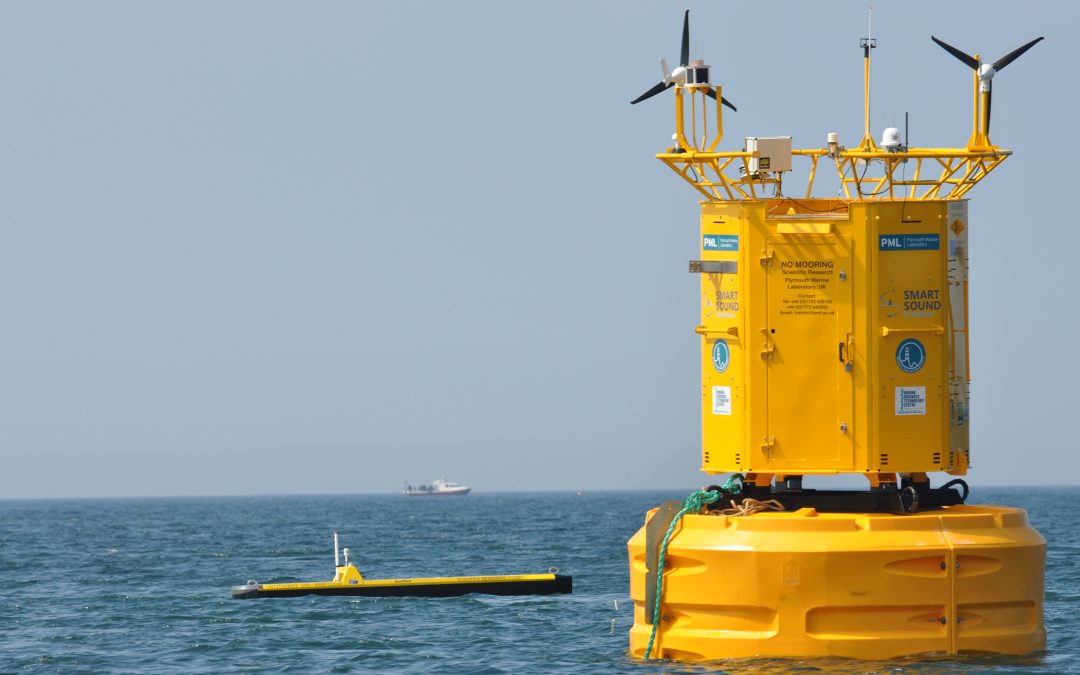Plymouth Marine Business Technology Centre is bowing out on top after delivering an impressive set of results that puts Plymouth and South Devon at the forefront of marine innovation.
The centre is a partnership led by Plymouth City Council with the Marine Biological Association, Plymouth Marine Laboratory, the University of Plymouth and the University of Exeter.
Part funded by the European Regional Development Fund, the project focussed on accelerating innovation in specialist areas of advanced marine autonomy, clean propulsion, advanced materials/manufacturing and using digital technology to expand marine knowledge.
Since its inception in 2018 it has
- Overseen the creation of Smart Sound Plymouth – an on-water proving area for designing, testing and developing cutting edge products and services which is home to Smart Sound Connect, the world’s first ocean-focussed 5G testbed
- Helped build the case for South Devon and Plymouth to become a Freeport
- Supported the development of new products at the forefront of innovation in autonomy, clean propulsion and the marine environment
- Creating new industrial space in Plymouth –five units which are fully let
The centre has
- supported 97 businesses
- engaged with a further 156 businesses
- seen 22 new products or services launched
- supported 49 in-depth research projects
- supported eight start-ups
- awarded 35 grants
The funding is ending this month and at a recent wrap up event, organisers and businesses got a moment to reflect on how much has been achieved in just five years.
Plymouth City Council leader Tudor Evans OBE said: “This centre has turbo-charged a really exciting sector where Plymouth is building a reputation for world class innovation.
“I secured the City Deal in 2014 which led to Oceansgate becoming a hub for marine industries and the Marine Business Technology Centre was developed as a service to support existing tenants and would be tenants. It has laid strong foundations for the success of the Plymouth and South Devon Freeport and 80 per cent of the pipeline of businesses that are looking to invest have come from the programme. That’s skilled green and marine jobs secured and developed for this area.”
Some of the work around marine automation is so cutting edge that the centre has been involved in devising regulations to guide future testing of autonomous vessels. Last year it was awarded Regulator’s Pioneer Funding to draw up a marine autonomy and clean propulsion regulatory framework development programme, that is due to start in partnership with the Maritime and Coastguard Agency (MCA) in September 2023.
Businesses can currently test prototypes in wave tanks and laboratories as well as controlled areas within ports. However, there are little guidelines or regulations available for companies wanting to test technology safely on open water.
The centre has been recognised as an exemplar project by the original funders and the region is now engaged with international collaborations with the likes of Singapore, Canada, Australia and northern European countries.
Icarus Allen, Chief Executive of Plymouth Marine Laboratory said: “The MBTC has played an important role in galvanising the growing marine tech sector in Plymouth and the wider SW region, in particular supporting the launch and development of the world-class capabilities of Smart Sound Plymouth, which we are proud to lead here at PML. Having cemented itself as the UK’s hub for advanced marine technology development, Plymouth has an exciting future ahead and we are grateful to the MBTC team for their part in making this happen. PML and our commercial subsidiary PML Applications continue to work closely with our partners across academia, industry and government, supporting innovation as we work towards a sustainable ocean
Dr Alex Nimmo Smith, Associate Professor in Marine Physics at the University of Plymouth, said: “The MBTC project has been the catalyst for a number of impactful initiatives. It enabled us to secure a cutting edge autonomous vessel that is being used to survey the waters of Plymouth Sound, and to work with South West companies to develop a better understanding of the ocean around us. It has also created opportunities for our students to engage directly with industry activity, preparing them to be part of the future workforce. This work is now being expanded through the Smart Sound Connect Subsurface project, so the MBTC’s legacy will continue to be built on in the years to come.”
Prof Chris Smith, Director of Centre for Future Clean Mobility (CFCM) at University of Exeter said “CFCM is proud to be part of the MBTC Project. This project has enabled us to support multiple businesses in Devon within the maritime sector. The collaborative work has led to the development of innovative products, successful applications for further external funding and the creation of new jobs. The MBTC project has demonstrated how we can effectively support local marine technology businesses.
Dr Rowena Stern, Business Research Support Officer, at the Marine Biological Association added: “The MBTC project has been an incredible project allowing the MBA to connect and allowing 19 small businesses, sole traders, charities and community interest companies in the marine sector achieve their goals, using our expertise and outstanding new Smart Experimental Aquarium facilities, creating long-lasting collaborations and improved research outcomes.”
The relationships, partnerships, collaborations and outcomes that have been achieved through the MBTC over the last five years have formed strong foundations which the Plymouth and South Devon Freeport will now continue building on.
The Freeport is already supporting and amplifying the exciting and innovative technology either being developed, or already deployed, to reach more international partners and provide global impact, and we look forward to working with more MBTC alumni businesses, and new and expanding marine and maritime businesses to support investment and growth opportunities.

